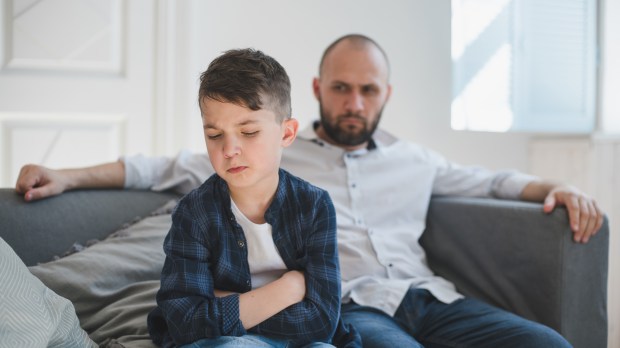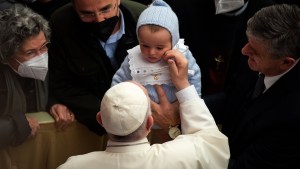Many people come face to face with the defects in their upbringing when they have become parents themselves, and realize they are perpetuating bad experiences.
Of course no one should expect their parents to be perfect, but Pope Francis considered the challenge of being a parent, specifically a father, when your own childhood had problems.
He was asked in an interview about St. Joseph what he thinks today’s children, who will be fathers in the future, might learn from a relationship with the father of Jesus.
“One is not born a father, but we are certainly all born as children,” the Pope began, in taking up the question.
This is the first thing we have to consider: that is, that each of us, aside from everything that life has reserved for us, is first of all a son or daughter, entrusted to someone, [a son or daughter] who comes from an important relationship that made them grow and that influenced them for better or for worse.
The Pope said that it’s important to recognize the relationship we have with our parents, and its effect in our own lives, to understand that “we will carry with us [into parenting] first of all the experience that we have personally had.”
The Holy Father suggested looking for both the good and the bad in our upbringing: “It is important then to be able to reflect on this personal experience in order not to repeat the same mistakes and to treasure the beautiful things we have experienced.”
St. Joseph’s example
Pope Francis suggested that St. Joseph had a profound effect on who Jesus was as a man.
I am convinced that the relationship of paternity that Joseph had with Jesus influenced his life so much, to the point that Jesus’ future preaching is filled with images and references taken precisely from paternal imagery. For example, Jesus says that God is Father and this statement cannot leave us indifferent, especially when we think about his personal human experience of paternity. This means that Joseph was such a good father that Jesus found in this man’s love and paternity the most beautiful reference he could give to God.
Be intentional
The Holy Father urged young people – the parents of tomorrow – to be intentional in forming themselves to be the kind of parents they want to be, so that past experiences do not dictate how they themselves will raise their children.
Young people “should ask themselves what fathers they had and what fathers they want to be.”
They should not let the role of fatherhood be a fruit of chance or simply of the consequences of a past experience, but rather they should decide with awareness how to love someone, how to take on the responsibility of someone.



